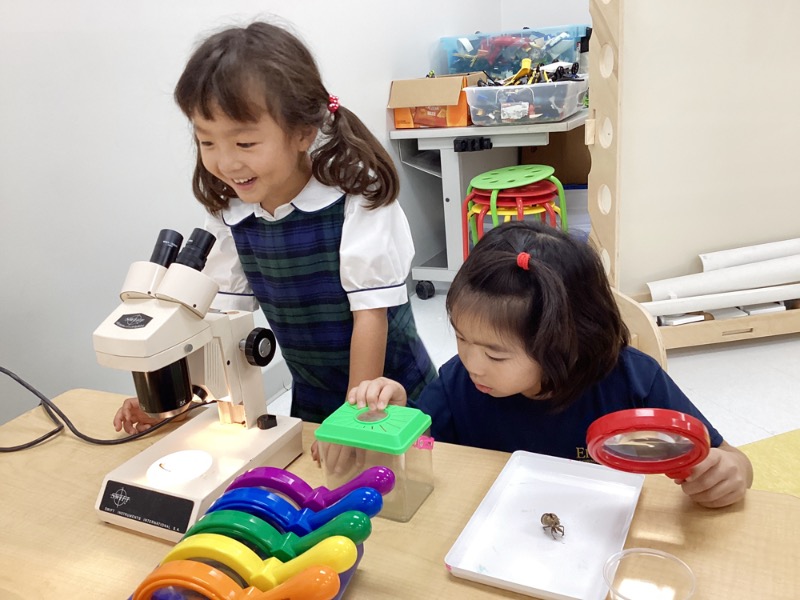- Admission
- Discover Episcopal
- Our Program
- Athletics
- Arts
- Spirituality
- Student Life
- Support Episcopal
- Alumni
- Parent Support
- Knightly News
- Contact Us
- Calendar
- School Store
- Lunch Menu
- Summer Camps
« Back
Small Creatures/Big Student-Led Learning
August 30th, 2023
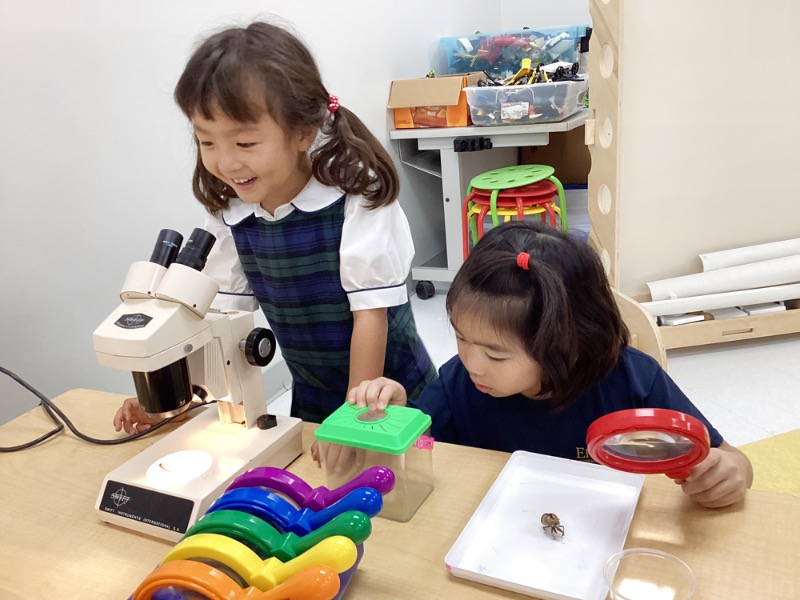
In South Louisiana, we all know the sound. A loud, resonating vibration that easily drowns out conversations. This time of year, cicadas are not subtle about making their presence known. Recently, this hum inspired an early childhood lesson that showcases the creative flexibility and student-led learning experiences that make an Episcopal education so special.
On the way to the Webster Refectory for lunch one day, kindergarten teacher Erin Dufour’s young Knights noticed a loud noise coming from trees on campus. They also found mysterious shells on the ground and in the shrubs. Curious and inquisitive, they wanted to know what made that sound and where the shells came from. Dufour was inspired. She quickly reached out to her fellow teachers and QUEST Center Coordinator Stacy Hill in the hopes of incorporating her students’ insect interest into the annual beginning-of-the-year unit on the five senses. The adults went to work researching cicadas – What exactly are they? How are they different from locusts? Why do they discard all of those shells? Within a few days, what started as curiosity was a full-fledged QUEST Center experience!
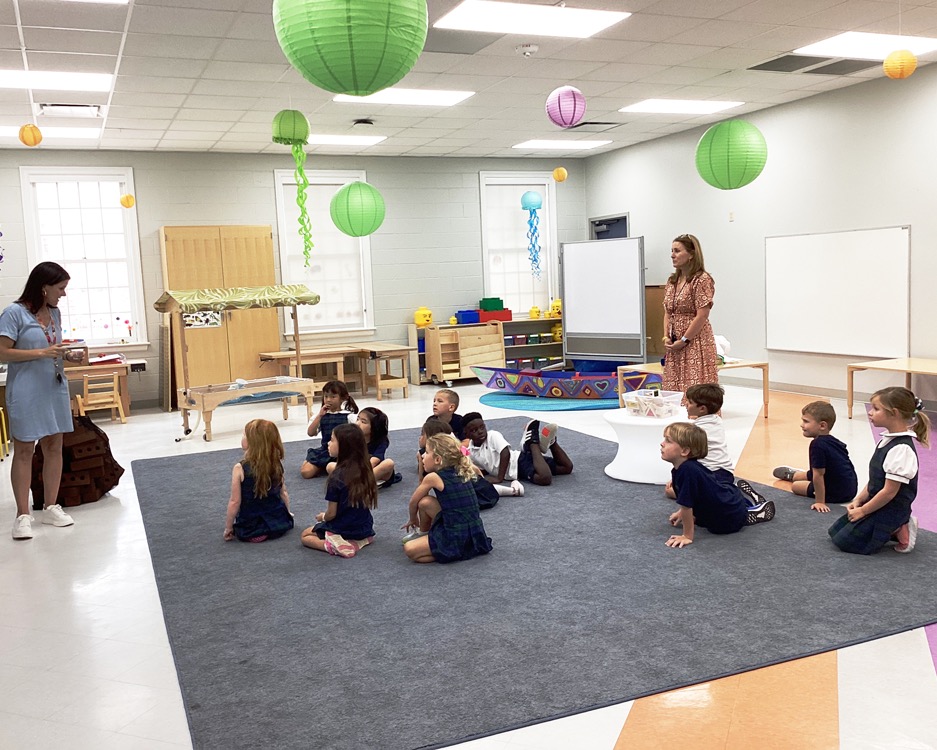
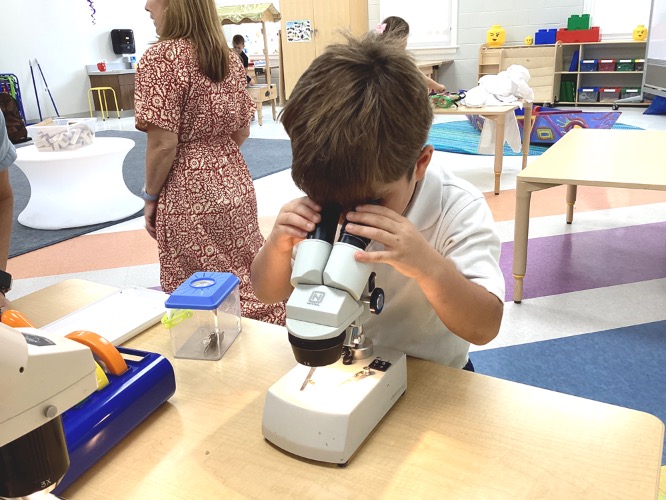
The next time Dufour’s class arrived for their assigned QUEST Center slot, there was a new station. On a little table in the back sat microscopes, brightly colored magnifying glasses and bugs! Hill had collected cicada shells from across campus. Once other faculty and staff saw what she was doing, they started bringing in more shells and even live cicadas. “When you tell people what you’re doing, it becomes a big thing,” she says of the teamwork that represents the Spirit of Episcopal.
The cicada station also included side-by-side photos of a locust and a cicada –a product of the teachers’ quick research in response to the students’ interests. As Dufour introduced the image, she asked students what they saw and how the creatures were different and the same. “The cricket and the giant bug,” one student advised. “Insects,” said another. Eventually, after learning more about the cicada lifecycle, students had the opportunity to explore the small creatures that make such a big sound.
As students examined the cicada shells, teachers asked questions about shapes and colors. With their curiosity peaked students expanded their vocabulary with new words like burrow and insect. Like true little scientists, they made observations and inferences and learned to use a microscope. “The littles are really amazing,” says Hill of the excitement with which early childhood learners approach each lesson. The station was so successful with the kindergarteners that teachers also made it available for other Lower School students, including PreK-4.
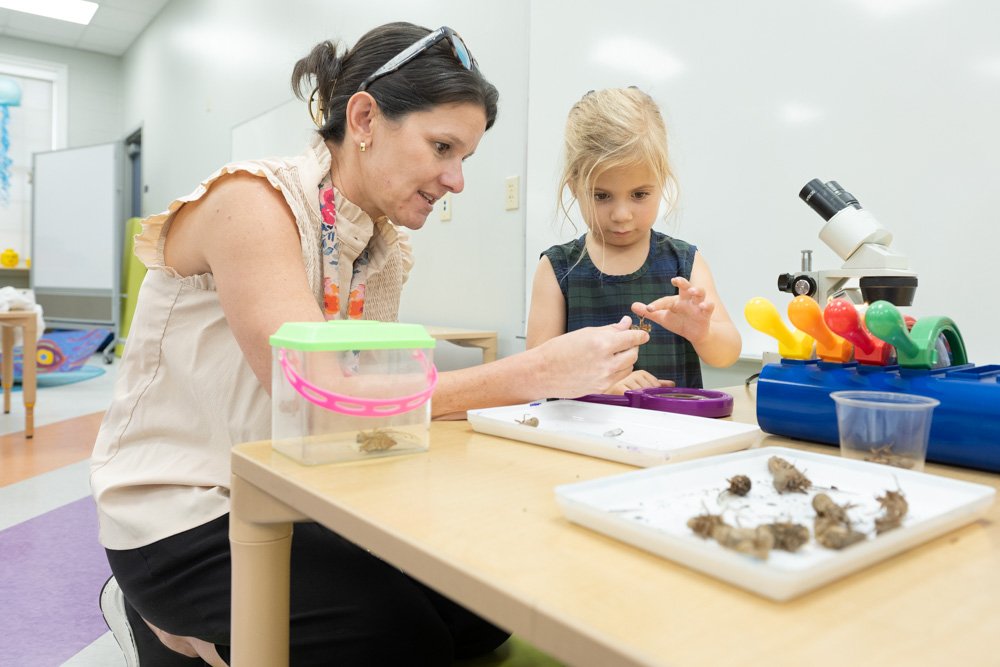
Student-driven learning is found across the Episcopal campus. Hill says one of the tremendous benefits of an Episcopal education is the flexibility all teachers have to “spend more time where it’s needed or wanted.” She remembers when, as a Middle School teacher, she had the latitude to reteach and remediate if students struggled with a concept. She also recalls times when she recognized that students were already knowledgeable in an area and the lesson needed to be adjusted accordingly. This type of learning, which is an Episcopal hallmark, is meaningful and allows students to make lasting connections. It also makes learning fun.
From cicadas to monarchs, Lower School students are curious about the world around them. Teachers like Dufour and Hill do a great job of harnessing that curiosity and applying it to lessons that will last a lifetime.
The Episcopal School of Baton Rouge 2025-2026 application is now available! For more information on the application process, to schedule a tour, or learn more about the private school, contact us at [email protected] or 225-755-2685.
Posted in the categories All, Lower School.
Other articles to consider
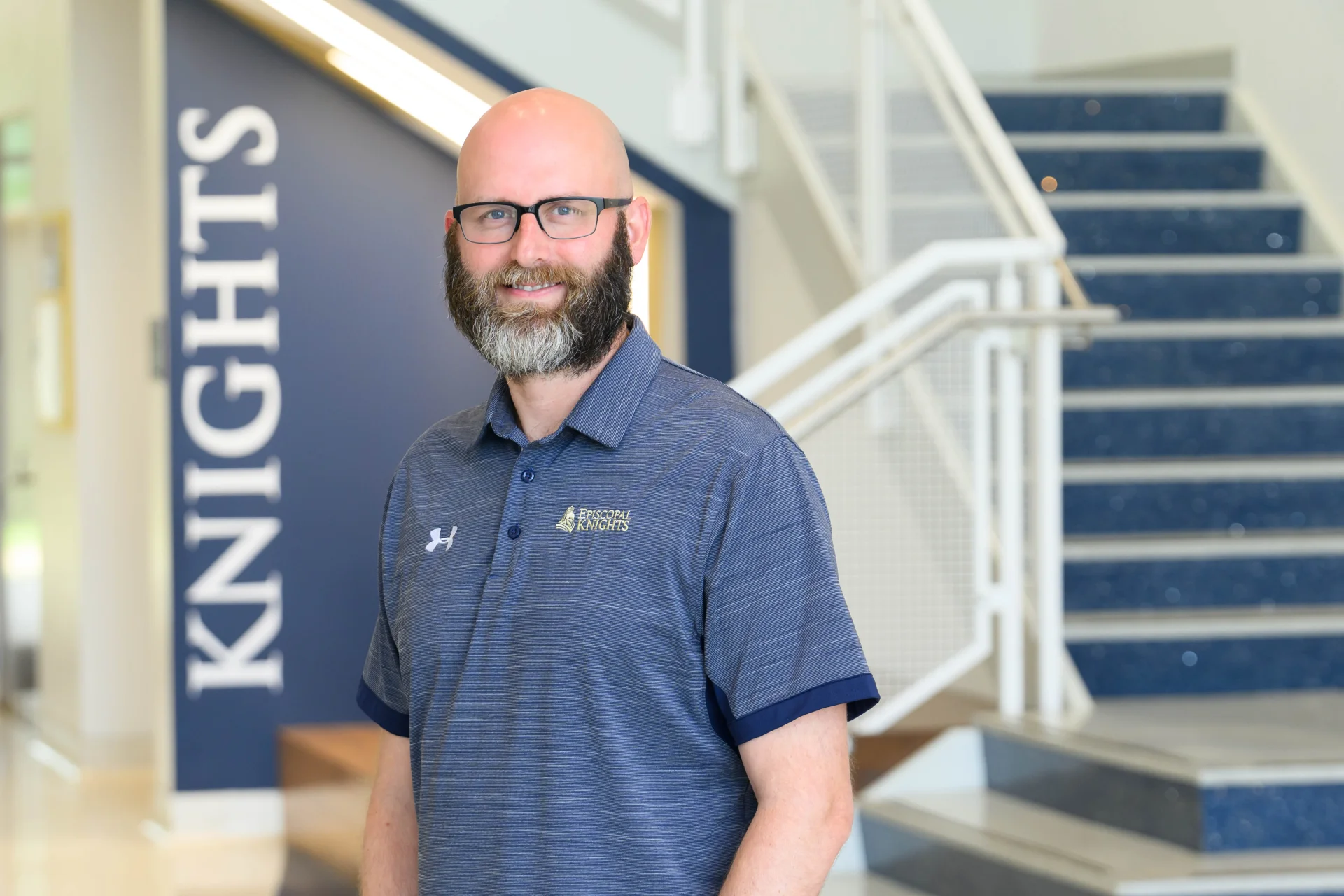 Jun5Episcopal Announces New Athletic Director
Jun5Episcopal Announces New Athletic DirectorPlease join us in welcoming Brent Broussard to the Episcopal community.
See Details Jun2Episcopal Welcomes Dan Binder as the Next Upper School Division Head
Jun2Episcopal Welcomes Dan Binder as the Next Upper School Division HeadPlease join us in welcoming Dan Binder to the Episcopal community.
See Details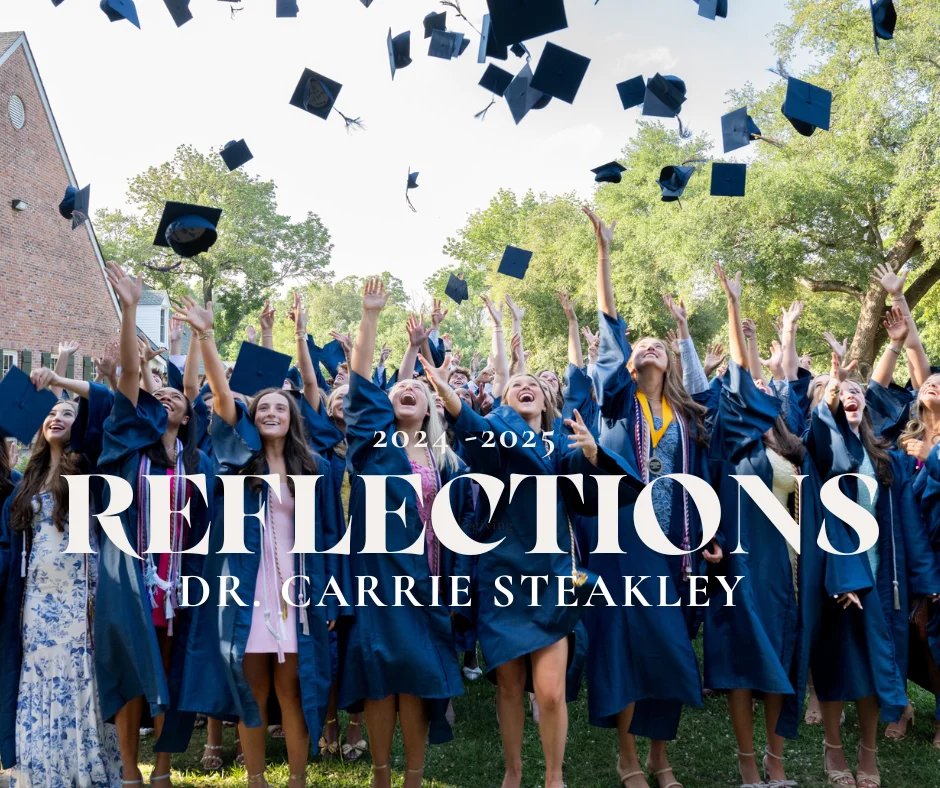 May22End of the Year Reflection from Dr. Steakley
May22End of the Year Reflection from Dr. SteakleyAn Episcopal education and the community that supports it are remarkable. Dr. Steakley looks back at the moments that made the 2024/2025 school year.
See Details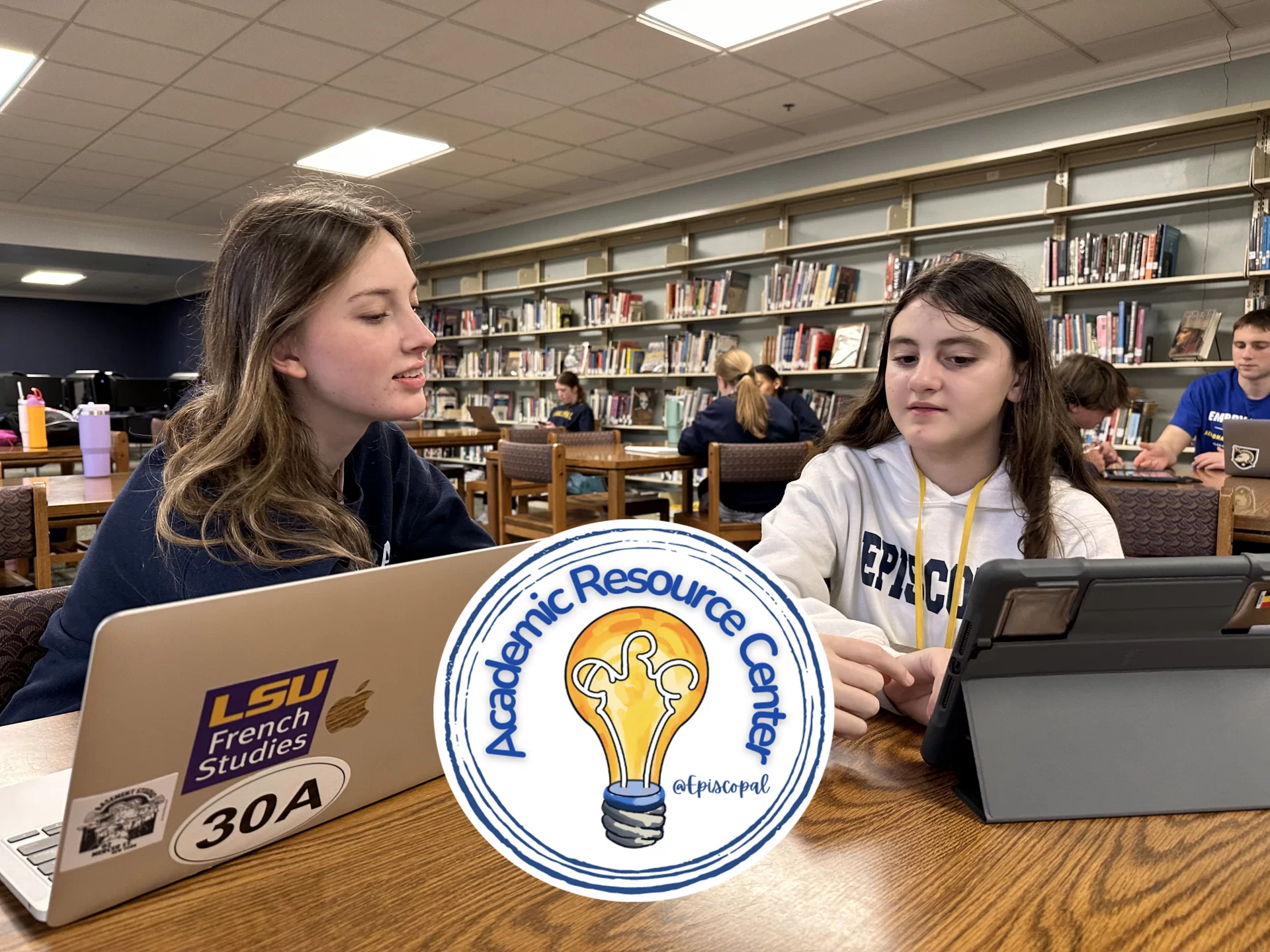 May12Tutoring with a Purpose: Jackson Ezell Reflects on His Time in the Academic Resource Center
May12Tutoring with a Purpose: Jackson Ezell Reflects on His Time in the Academic Resource CenterTime as an ARC Fellow boosts student confidence, encourages friendships and fosters lifelong learning habits. Senior Jackson Ezell reflects on his transformation as a tutor and the transformation of the center from Writing Center to Academic Resource Center.
See Details
Categories
- All
- Admission
- Athletics
- College Bound 2019
- College Bound 2020
- College Bound 2021
- College Bound 2022
- College Bound 2023
- College Bound 2024
- College Bound 2025
- Counselors Corner
- Episcopal Alumni
- Giving
- Head Of School
- Lower School
- Middle School
- Spirituality And Service
- Student Work
- The Teachers' Lounge
- Upper School
- Visual And Performing Arts


